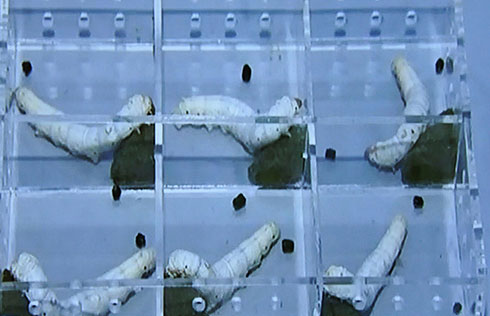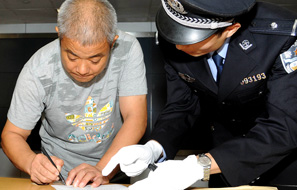Nursing homes reject childless couple
Wang Jin'e, 77, has been looking for a nursing home for 10 years.
She lost her only son 15 years ago, and without a guardian as warrantor, Wang and her husband have been repeatedly rejected from care homes.
"After my son died of a heart attack, my husband and I lost the only person we could depend upon and our hope of a life. It has been a nightmare for us," said Wang. "None of the nursing homes in Beijing would take the risk of accepting us."
It has been a nationwide practice of nursing homes to insist residents have guardians to provide warranty, so that in incidences such as surgery or death the nursing homes can get guardians' permission and financial support, according to Fu Chaoyi, a volunteer at a nursing home in Beijing.
"That means for thousands of old people without children, the door to nursing homes is closed," said Fu.
However, the situation is expected to change. Ten nursing homes in Beijing, led by a nonprofit organization, have agreed to adjust the guarantee policy and put aside 500 beds for elderly people who have lost their only child.
Xu Kun, founder of the organization Beijing Love Delivery Care Center for Seniors, said her original idea was to establish a nursing center dedicated to elderly people who lost their only child. But the high price of land in Beijing has altered her plan.
"The consultancy hotline my organization opened last March has received many calls, complaining about the difficulty of applying to live in nursing homes simply because they don't have a legal guardian to sign for them," she said.
To help these people, the organization will sign contracts with such elderly applicants to act as their guarantors.
Other services include setting up free consultancy services for childless parents, helping to relieve their pain and loneliness.
"So far, 20 elderly people have phoned us asking about this project. Since we launched it on Sunday, our hotline has kept ringing," said Lin Xue, an employee at the center.
Beijing Cuihu Elderly Care Center is the first nursing home in Beijing to respond to Xu's calls to relax the guarantee policy.
Fu Chaoyi, the center's volunteer, said he saw the necessity of special care for the childless elderly.
"Different from other senior citizens who would have visitors once in a while, those who lost their children have no visitors at all," said Fu. "A special area designated for them is necessary to avoid them being reminded of their pain."
Fu said the nursing home in Haidian district has already allocated a floor with more than 20 beds to cater to the childless, with therapists providing psychological rehabilitation. A building to accommodate such residents is expected to be built next year.
By the end of 2011 there were 2.48 million people aged 60 or above in Beijing. About 8,000 elderly are parents whose single child has died, according to the latest statistics from the Beijing Municipal Commission of Population and Family Planning.
Besides attempts in Beijing, lawmakers and political advisers in Heilongjiang, Hunan and Hebei provinces, as well as in Shanghai, have also called for better social welfare for childless parents, local media reported.
Zhang Yayu, a deputy to Shanghai People's Congress, the city's legislature, who works in a community, proposed that the government and social organizations provide economic, living and mental support for the group.
Measures she proposed included the government raising subsidies, removing legal obstacles and providing mental health care via social entities.
Contact the writers at yangyao@chinadaily.com.cn and hedan@chinadaily.com.cn


















